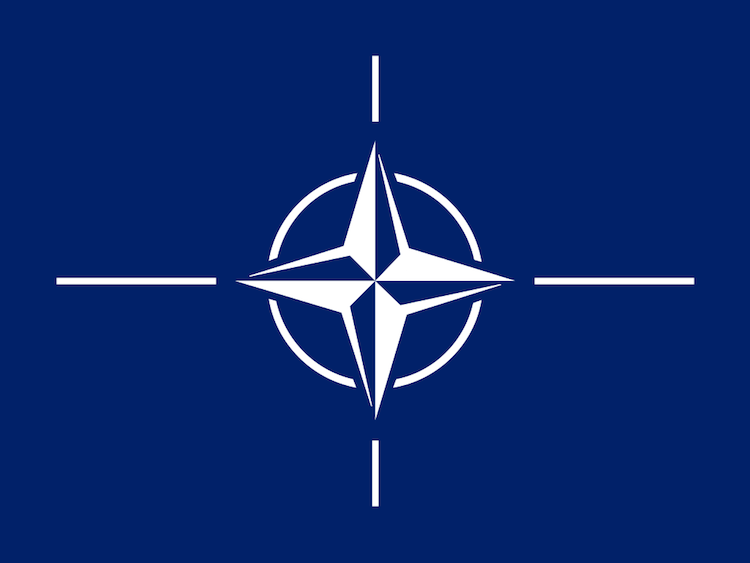By J C Suresh
TORONTO | INDIANAPOLIS (IDN) – “The largest NATO war games in decades, involving 14,000 U.S. troops, and activation of U.S. missile defenses in Eastern Europe are fueling growing tensions between nuclear-armed giants,” the United States Conference of Mayors (USCM) has warned in run-up to the 28-nation North Atlantic Alliance’s summit on July 8-9 in Poland’s capital Warsaw.
The resolution adopted by the USCM’s 84th Annual Meeting June 24-27 in Indianapolis says: “More than 15,000 nuclear weapons, most orders of magnitude more powerful than the Hiroshima and Nagasaki bombs, 94% held by the United States and Russia, continue to pose an intolerable threat to cities and humanity.” JAPANESE | NORWEGIAN | SWEDISH
To underscore the point, the resolution recalls: “August 1945 U.S. atomic bombings of Hiroshima and Nagasaki indiscriminately incinerated tens of thousands of ordinary people, and by the end of 1945 more than 210,000 people – mainly civilians, were dead, and the surviving hibakusha, their children and grandchildren continue to suffer from physical, psychological and sociological effects.”
The USCM calls on “the next President of the United States, in good faith, to participate in or initiate… multilateral negotiations for the elimination of nuclear weapons as required by the 1970 Nuclear Nonproliferation Treaty”.
While commending President Barack Obama for visiting Hiroshima in May, nearly 71 years after the atomic bombings, the United States Conference of Mayors strongly criticizes the Obama Administration for having “laid the groundwork for the United States to spend one trillion dollars over the next three decades”.
USCM, the nonpartisan association of American cities with populations over 30,000, says, “the Obama Administration” has not only reduced the U.S. nuclear stockpile less than any post-Cold War presidency”, but also decided to spend one trillion dollars “to maintain and modernize its nuclear bombs and warheads, production facilities, delivery systems, and command and control”.
And this despite the fact that “federal funds are desperately needed in our communities to build affordable housing, create jobs with livable wages, improve public transit, and develop sustainable energy sources”, said the resolution.
The USCM “calls on the next President and Congress of the United States to reduce nuclear weapons spending to the minimum necessary to assure the safety and security of the existing weapons as they await disablement and dismantlement, and to redirect those funds to address the urgent needs of cities and rebuild our nation’s crumbling infrastructure”.
The USCM, for the 11th consecutive year, adopted a strong resolution in support of Mayors for Peace, warning that “the nuclear-armed countries are edging ever closer to direct military confrontation in conflict zones around the world,” and calling on the next President of the United States “to pursue new diplomatic initiatives to lower tensions with Russia and China and to dramatically reduce U.S. and Russian nuclear stockpiles”.
The USCM also “commends Mayor Denise Simmons and the Cambridge City Council for demonstrating bold leadership at the municipal level by unanimously deciding on April 2, 2016, to divest their one-billion-dollar city pension fund from all companies involved in production of nuclear weapons systems and in entities investing in such companies”.
Mayors for Peace, an international organization, founded in 1982 and led by the Mayors of Hiroshima and Nagasaki, aims through its 2020 Vision Campaign to achieve the global elimination of nuclear weapons by 2020.
Mayors for Peace membership has grown by more than ten-fold since 2003, as of June 1, 2016 counting 7,063 cities in 161 countries and regions including 207 U.S. members, representing some one billion people, one-seventh of the world’s population. On June 22 in Des Moines, Mayor Frank Cownie formally agreed to serve as Lead City for the U.S. section of Mayors for Peace.
Addressing the USCM International Affairs Committee on June 25, Yasuyoshi Komizo, Secretary-General of Mayors for Peace, explained: “One common challenge we face is that many countries continue to maintain that their national security depends on nuclear deterrence. Yet nuclear deterrence is based on mutual distrust and attempts to maintain peace through the threat of indiscriminate mass killings.”
He added: “Such a system cannot be sustainable. We must also note that nuclear weapons cannot offer any effective solutions to the global security challenges of the 21st century. They also consume budgetary and technological resources needed for economic development, including the welfare of the world’s cities.” [IDN-InDepthNews – 01 July 2016]
IDN is flagship agency of the International Press Syndicate.
Image: The flag of the North Atlantic Treaty Organization (NATO).




